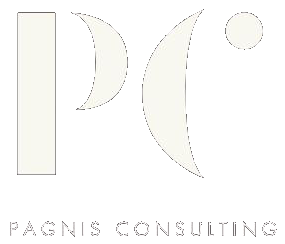Organization Culture and its importance is a hot topic discussed across various multinationals. There are several surveys held in this regard too. There are companies who are confident enough to participate in these external surveys, take cue from results and act on them to give their employees a conducive work environment. On the other hand, there are companies who wish to not even enter the territory. The question is why?
Are they aware of their deficiencies and do not want to accept them. Most times, we are perceptive of our fallacies but choose not to address them. The inner voice tells us to not pay heed to a so called reality or we don’t want to shift the locus of control, continuing to be power hungry.
And to endorse why organization culture matters, I recently worked on a case study for an organization that has been assessed as one of the best organizations to work for, for more than 5 consecutive years in a row, across various geographies.
I used the OCTAPACE instrument introduced by Dr. Udai Pareek, who’s considered “The Father Figure of HRD.” The instrument was introduced in 1993 and measures a company based on eight cultural parameters, namely; Openness, Confrontation, Trust,
Authenticity, Pro-action, Autonomy, Collaboration and Experimentation.
The analyses was carried out in 3 different ways:
- Assessing the parameters which stand out most in the study
- To determine if there is a similarity in the values and beliefs of the organization, and
- To study which questions under the eight respective categories scored the highest
There are companies like Google, SAS and The Boston Consulting Group that are well regarded and sort after companies. And in today’s day and age these companies set an example as an ideal employer. For example, Google is an effective and efficient employer who has been able to maintain its attrition rate below industry average for the longest time. Which brings us to the point that it is imperative for a company to ensure that all parameters of culture are in sync with company expectations.
A strong organization culture is the driving force for not only the company’s growth but the employees’ growth as well. The study gives an in-depth look into the world of some top companies and how prospective employees can or should recognize about the company.
On the other hand, the study also helps to determine the parameters of excellence as well as improvement for the company and how they can act on their areas of development.
There are many questions a company needs to address before establishing a certain kind of organization culture.
And the paramount question is whether it is ready to invest that kind of time and money?
Do they want to ‘not’ invest in organization culture and let employees stick on or invest in culture, let employees perform who, may or may not quit later?
Some other questions include:
Are we going to invest time and money in enlisting the culture but only on paper and on the intranet?
Are we going to ensure that the same culture resonates across all our geographical branches?
There are many other questions an organization needs to ponder over irrespective of taking the brave step of going in for a third party verification. But, the fact remains that the importance of organizational culture cannot and should not be contested. An ideal company will not let go of an opportunity to brand itself amongst its internal stakeholders and treat them as real assets. The employees are the real asset because “happy employees = happy customers.” As Norman Howard, Director of Human Resources, W.K. Kellogg Foundation stated “the culture of an organization plays a critical and essential role in defining the importance of ethics both in how it respects employees and how it conducts business.”





